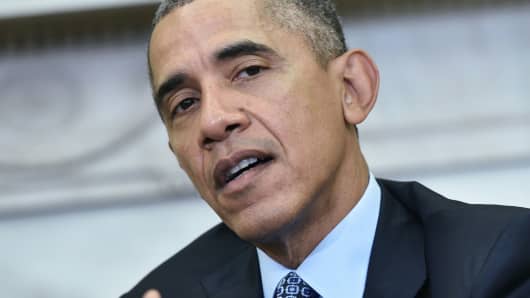Since the digital currency bitcoin and blockchain (the underlying technology) burst onto the scene in 2009, serious skepticism and palpable passion have played equal roles. Many bitcoin devotees wanted little to do with government legislators or regulators and regulators were dubious of this new currency.
Since 2014, however, we've seen a serious and significant shift among government officials and within the bitcoin/blockchain community. The Securities and Exchange Commission and Commodity Futures Trading Commission have approved certain bitcoin/blockchain-related activities under their jurisdictions. The Internal Revenue Service has opined that digital currencies such as bitcoin are taxed as "property." The Chamber of Digital Commerce opened its doors in Washington, DC, about two years ago and has made huge strides in helping public policy makers understand the potential promise of blockchain technology. While these are all affirmative steps for the disruptive industry and for consumers/investors, more needs to be done.
When the internet was being developed, an effort and initiative by the Clinton administration to ensure that the fledgling idea would not be overly regulated was put in place — the 1997 Framework for Global Electronic Commerce. The point: to ensure laws and regulation would not negatively impact innovation. Current CFTC Commissioner Chris Giancarlo recently (and rightly) called for such protection for digital currency. President Obama should heed the call.
To make matters more complicated, many regulations in the U.S. are actually state-level guidelines as they relate to what are termed "money transmitters." Without some proactive step(s), such as a self-regulatory organization (SRO) and/or word from on high by the president, the U.S. could lose out on what are potentially enormous economic benefits.
With an available supply of more than 15.5 million bitcoins, the digital currency now has a market capitalization of nearly US$7 billion, according an estimate by market-data site CoinCap. That's to say nothing of the colossal commercial value of blockchain endeavors which could help fuel-inject the economic engine of our democracy.
The blockchain itself holds untold promise and potential for revolutionizing everything from banking and trading exchanges to real estate — even electronic voting.
The European Union has developed a business-friendly regulatory regime for e-money and authorized payment institutions, which can operate across EU member states under the so-called "passport" system. This approach stands in clear contrast with our fragmented state-by-state regulation of equivalent U.S. institutions.
There is a huge opportunity that can be tapped into if U.S. government officials and industry thought-leaders establish an appropriate balance between basic consumer protection regulation and an openness which not only permits, but fosters and promotes, innovation. We did it with the internet — and we need to do it now with virtual currencies like bitcoin.
Commentary by Bart Chilton, former commissioner on the Commodity Futures Trading Commission. He is currently a senior policy advisor at the global law firm DLA Piper. He is also the author of "Ponzimonium: How Scam Artists Are Ripping Off America."
For the latest commentary on markets in the U.S. and around the world, follow @CNBCopinion on Twitter.






